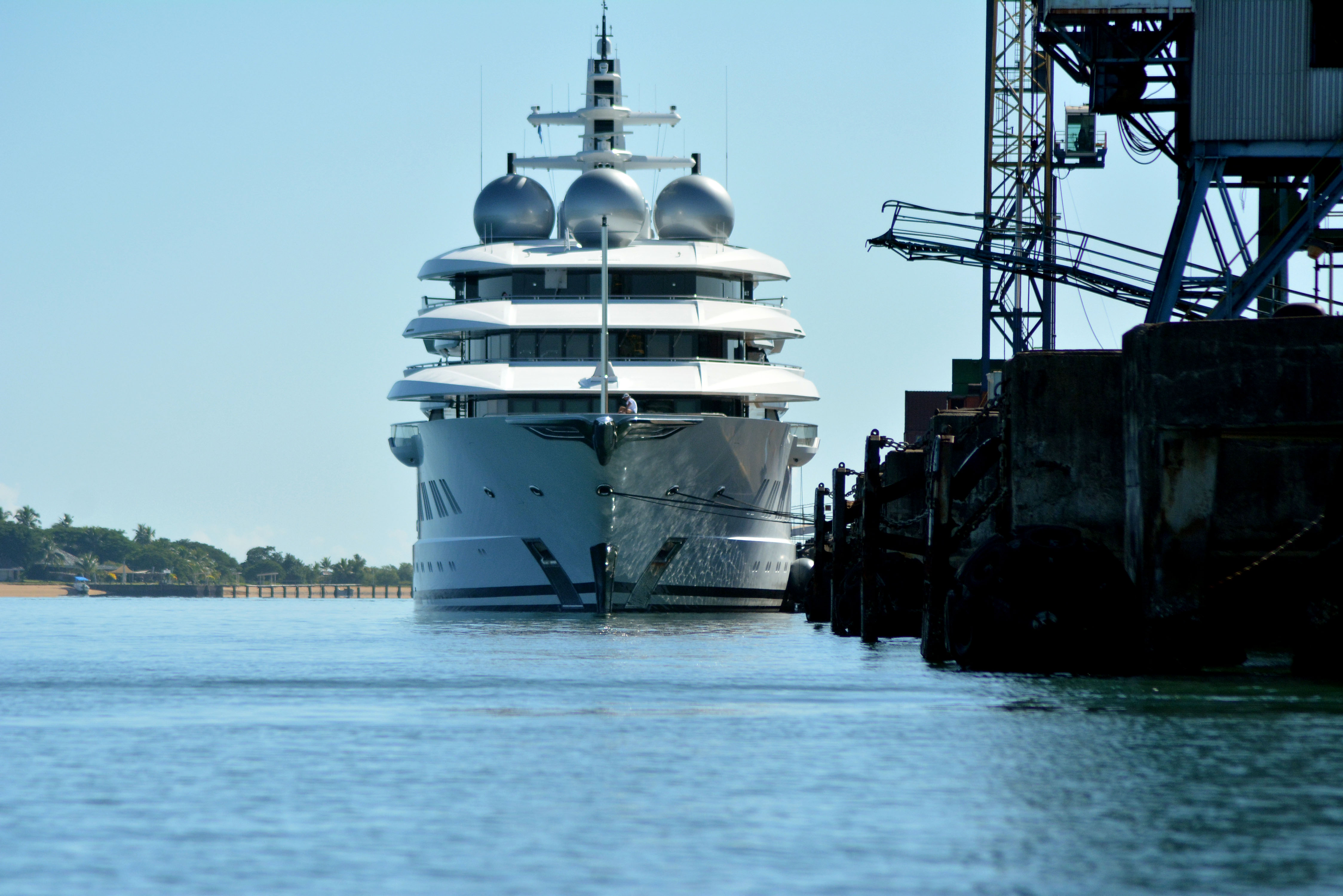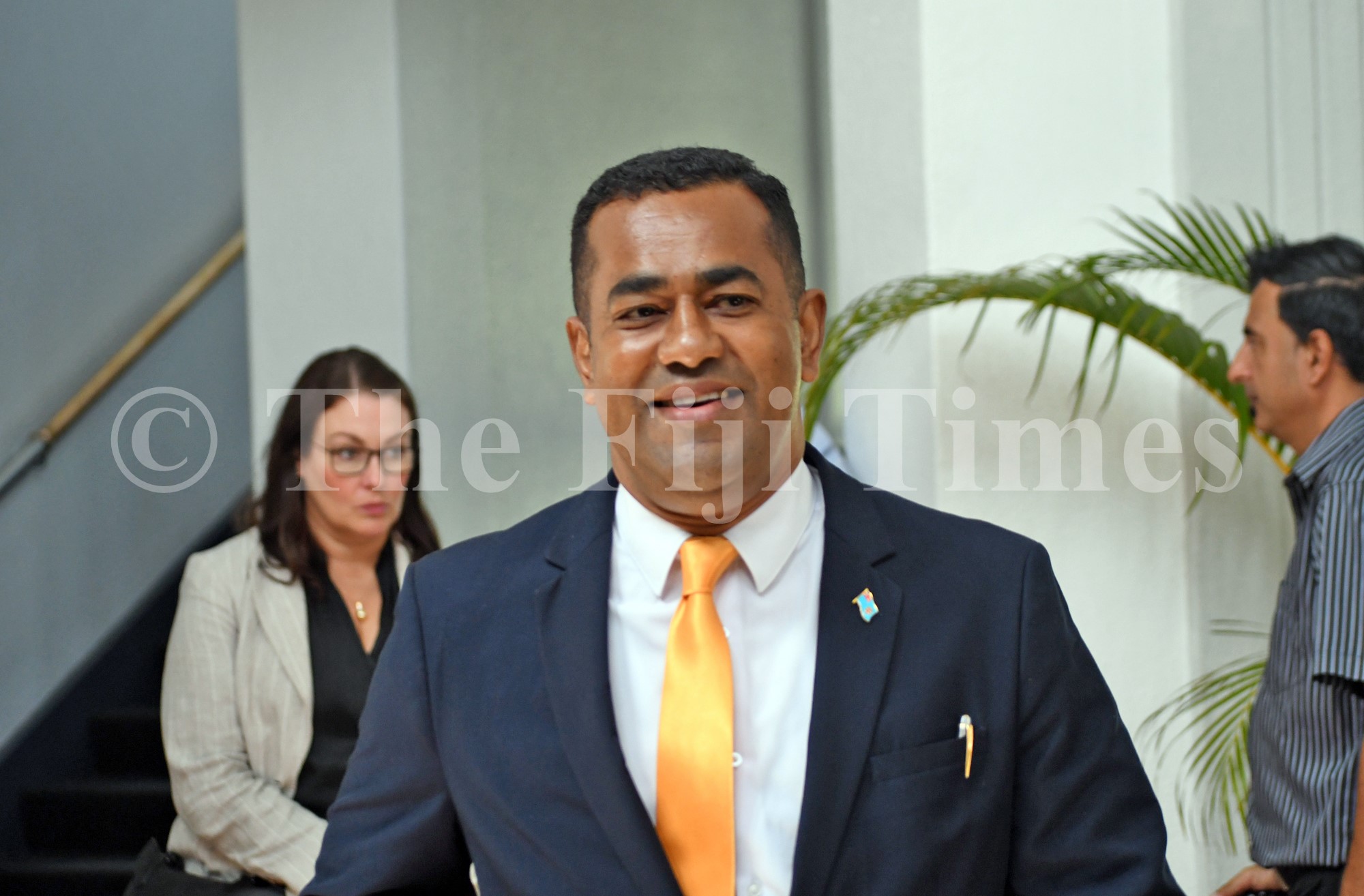The superyacht Amadea is the responsibility of the Attorney-General while in Fiji, Director of Public Prosecutions Christopher Pryde said.
He said this in the Court of Appeal when the Milemarin Investments Ltd appeal of the registration of the United States warrant was called before Justices Eric Basnayake, Susantha Lecamwasam and Almeida Guneratne yesterday.
Mr Pryde said after the registration of the US seizure warrant, the luxury vessel came under the responsibility of the A-G and the State was obligated to pay for the cost of maintaining it.
He said that he, acting on the authority of the A-G, allowed American authorities aboard to collect evidence for the matters concerning the yacht in the US, as part of the mutual assistance requested by the US authorities.
He also said policemen, acting as agents of the A-G, were aboard to ensure control and management of the yacht but also to ensure that evidence was not destroyed or the yacht sabotaged.
Mr Pryde said the State was actually paying $1.2 million per week and not the $1 million as earlier reported to maintain the yacht.
Milemarin Investments Ltd lawyer Faizal Hannif told the court that the crew were still aboard and were looking after the maintenance at the expense of Milemarin Investments Ltd, and that the policemen were enjoying the pleasures of superyacht life — “daily tea and cakes”.
He also said the US authorities were willing to pay for the yacht while it was in Fiji.
Mr Hannif said the appeal hinged on the registration of the US seizure warrant, which he said, was not recognised under Fiji law, arguing that the warrant was registered as a restraining order and had the effect of any local restraining order, but did not mean the yacht could be seized and taken to the US.
He said the warrant did not request a court to restrain the yacht, but ordered the seizure of the yacht “within the jurisdiction of the District of Columbia”.
He also said the High Court was “star-struck” that it was an American court order.
Mr Hannif said Fiji law did not allow for the seizure and that a restraining order must first be applied for.
He also said Fiji law allowed for the yacht to be restrained in Fiji while ownership was decided in the US.
Mr Pryde said seizure was just one way of restraining and while it was termed a warrant of seizure, it was a restraining order under Fiji.
He said the registration of the seizure warrant was a step towards forfeiture, but that would have to be determined by the US courts.
He also said the yacht could be allowed to leave the Port of Lautoka and that it needed to be disposed off to the US.
Mr Pryde said it was like an extradition case where an accused person was to face trial in one country and not for the courts in another to decide his guilt.
“There cannot be two trials,” he said.
“This matter was commenced in the US and should conclude in the US.
“It would be untenable not to allow that.”
Judgment on the matter will be delivered on notice.
The interim stay order granted earlier by the Court of Appeal has been extended until the delivery of the judgment.





